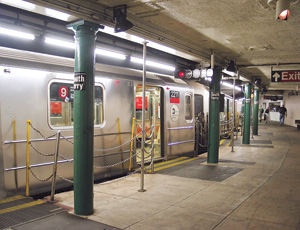A recent study by the Federal Transit Administration concludes that the nation’s largest transit agencies need at least $50 billion to bring their assets into a state of good repair and another $6 billion would be needed annually for normal maintenance. The Rail Modernization Study, completed in April at the request of Sen. Richard Durbin (D-Ill.) and 11 other senators, examined capital needs of the seven biggest U.S. rail transit agencies. It looked at older systems in New York, Boston, Chicago and Philadelphia, as well as newer systems in San Francisco, New Jersey and Washington, D.C. Combined, the agencies serve more than 3 billion passengers, more than 80% of all national transit riders. They also maintain 6,049 track miles, 1,701 stations and 14,629 fleet vehicles.

FTA found 35% of those agencies’ assets are in marginal or poor condition, 35% adequate, 22% good and only 8% excellent. Durbin requested the study to determine if transit systems, faced with increasing ridership, are being adequately funded and what is needed to modernize them. He says the study “estimates that we are underfunding our nation’s oldest rail systems by $5.9 billion per year.”
Currently these agencies receive $2.9 billion in federal funds for infrastructure improvements but spend $2.7 billion on rehabilitation and replacement. Less than 7% of the funds go to expansion. In addition, the study says increased spending on busways and HOV lanes has sapped rail funding, particularly in cities with older systems. “This analysis suggests that continued reinvestment at current rates will result in a continuing decline,” says the report.
“The FTA was given the task of reporting on the current state of good repair of the nation’s transit systems,” says FTA spokesman Paul Griffo. “We did so, and then gave Congress a number of options for resolving the issues.”
Those options are to modify the fixed-guideway funding formula to redirect aid to services in larger and older systems; create a temporary fund lasting two to three reauthorization periods of six years to eliminate repair backlogs; have FTA develop technical assistance programs similar to those of the Federal Highway Administration; and create a national transit asset database to support better needs assessment and monitoring.
William W. Millar, president of the American Public Transportation Association, Washington, D.C., says the report highlights the continued underfunding of transportation. APTA is asking Congress for $123 million over the next six years for transit improvements.

Post a comment to this article
Report Abusive Comment